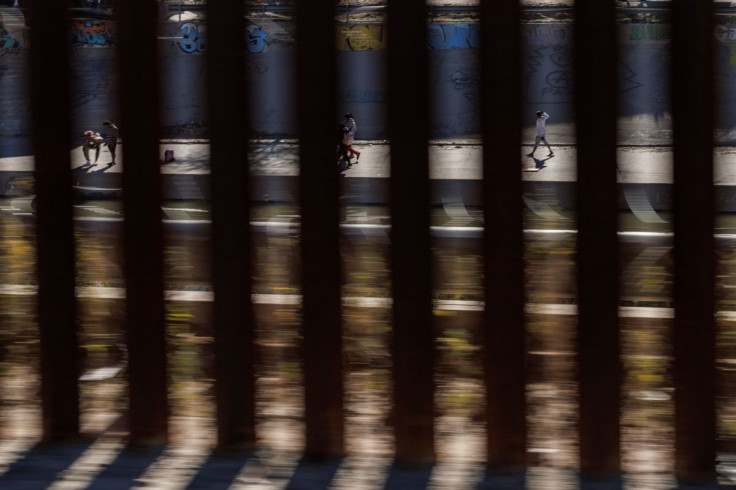
The Texas law allowing state authorities to arrest and deport migrants, known as SB4, was put back on hold early Wednesday after briefly taking effect the day before.
Concretely, a 5th U.S. Circuit Court of Appeals panel -the one that gave the law the legal green light- decided to temporarily pause its implementation ahead of oral arguments scheduled for Wednesday. It isn't clear how quickly the next decision could come following the divided, 2-1 ruling.
SB4 was briefly in effect on Tuesday after the Supreme Court lifted a stay allowing it to go ahead while the broader legal battle continued. Liberal justices Ketanji Brown Jackson, Elena Kagan and Sonia Sotomayor had disagreed about letting the law go into effect.
Texas authorities didn't announce any arrests or deportations during the period in which the law was in effect. The Associated Press reported that Kinney County Sheriff Brad Coe embraced the arrest powers but said deputies would need probable cause.
"It is unlikely that observers will see an overnight change," said Coe. His county covers part of the border near Del Rio was seeing a large number of illegal crossings but have decreased significantly lately.
The Supreme Court didn't rule on the merits of SB4, instead sending back to the court of appeals the legal challenge made by the Justice Department, which has said the law would alter "the status quo that has existed between the United States and the States in the context of immigration for almost 150 years." It also said immigration is an issue that falls solely within the authority of the federal government. And, on a separate note, that the law would have "significant and immediate adverse effects" on the country's relationship with Mexico.
In fact, the Mexican government condemned the law's implementation on Tuesday. The Foreign Ministry stated that the measures promoted by the Texas Congress and enacted by Governor Greg Abbott "encourage the separation of families, discrimination and racial profiling."

Mexican authorities also referenced the fact that the law aims to send apprehended migrants back to checkpoints at the state's border crossing with Mexico, regardless of their nationality.
They added that the country "categorically rejects any measure allowing state or local authorities to exercise immigration control, detain, and return nationals or foreigners to Mexican territory." And announced that Mexico will participate as Amicus Curiae before the Fifth District Court of Appeals in New Orleans, Louisiana. Their aim is "to provide relevant information on the law's impact on the Mexican and Mexican-American community, as well as its effect on relations between Mexico and the United States."
Senate Bill 4, as the proposed law is known, has been considered by opponents the most dramatic attempt by a state to police immigration since an Arizona law more than a decade ago that would have allowed police to arrest people for federal immigration violations, often referred to as the "show me your papers" bill."
The law allows state authorities to arrest and potentially deport migrants who cross the border unlawfully. Concretely, they can identify, apprehend, and prosecute people under suspicion of having entered the country without authorization.
In addition, it classifies these illegal crossings as a Class B misdemeanor that carries a penalty of up to six months in jail. Migrants who don't leave and are arrested again could face more serious charges.
© 2025 Latin Times. All rights reserved. Do not reproduce without permission.





